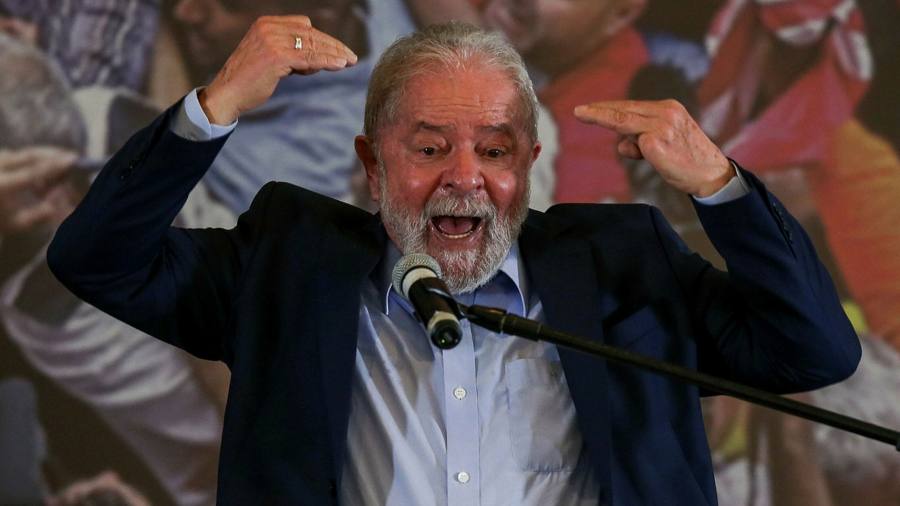[ad_1]
Latin America’s most famous politician has made a triumphant return to centre stage after a supreme court judge unexpectedly quashed his convictions for corruption. No matter that the ruling favouring former Brazilian president Luiz Inácio Lula da Silva was based on a mere technicality; his supporters hailed the decision as a vindication of their long-held belief that Lula was the victim of a politically motivated vendetta.
The consequences of the ruling, assuming that it is upheld by the full court, are immense. At a stroke, it redraws the electoral map for next year’s presidential election by allowing Lula to run again. Hard-right President Jair Bolsonaro had been in a strong position to win re-election against a divided opposition; now he is likely to face a strong challenge from the left.Â
Bolsonaro has a woeful record in power, which has included repeatedly praising dictatorship, allowing Amazon deforestation to surge to 12-year highs and dangerously mismanaging the pandemic, while disappointing investor hopes for big economic reforms. That might invite the conclusion that a ruling allowing Lula’s return can only be good for Brazil.
Yet the judge’s decision has unhappy consequences. It strikes a heavy blow against the credibility of Latin America’s biggest and most successful corruption investigation. It raises disturbing questions about Brazil’s justice system. And it increases the chances that the country’s notoriously venal politicians can get back to business as usual.
The case against the former leftist president, who ruled from 2003-10, stemmed from the “Lava Jato†corruption probe. Named after a car wash used to launder money in BrasÃlia, the probe began in 2014 and uncovered a vast contracts-for-kickbacks scheme involving state-controlled oil group Petrobras, a group of construction companies and scores of prominent politicians. The investigation blew apart the impunity that had reigned among the country’s elite and won huge public support.
But in their zeal to bring the powerful to book, prosecutors made serious mistakes. Leaked messages between a judge trying the cases, Sergio Moro, and prosecutors discussing what evidence to use against Lula suggested corners were being cut to secure convictions. Moro’s subsequent decision to accept a cabinet post in Bolsonaro’s government only fuelled accusations of political bias. He later resigned, but the damage had been done.
Lula has now fanned the flames engulfing “Lava Jato†in his comeback speech. Instead of addressing the widespread corruption uncovered on his watch by the probe, he declared himself the victim of “the biggest judicial lie in 500 years†and claimed the judge who overturned his sentence “recognised that there has not been any crime committed by meâ€. The judge did no such thing: he merely ruled that the provincial court which heard the cases did not have jurisdiction, meaning they must start afresh in a different court.
These legal niceties will be lost on most Brazilians, and for that the supreme court has only itself to blame. To rule on a court’s jurisdiction nearly four years after it passed sentence seems bizarre; to allow such a crucial decision to be taken by a single judge originally appointed by Lula’s party is to invite accusations of partiality.
Brazil now faces the ominous prospect of impunity for the corrupt: the “Lava Jato†investigation was quietly wound up last month after seven years. Almost as unappealing is the promise of a polarised election next year between candidates of the hard right and the old-fashioned left.
[ad_2]
Source link





